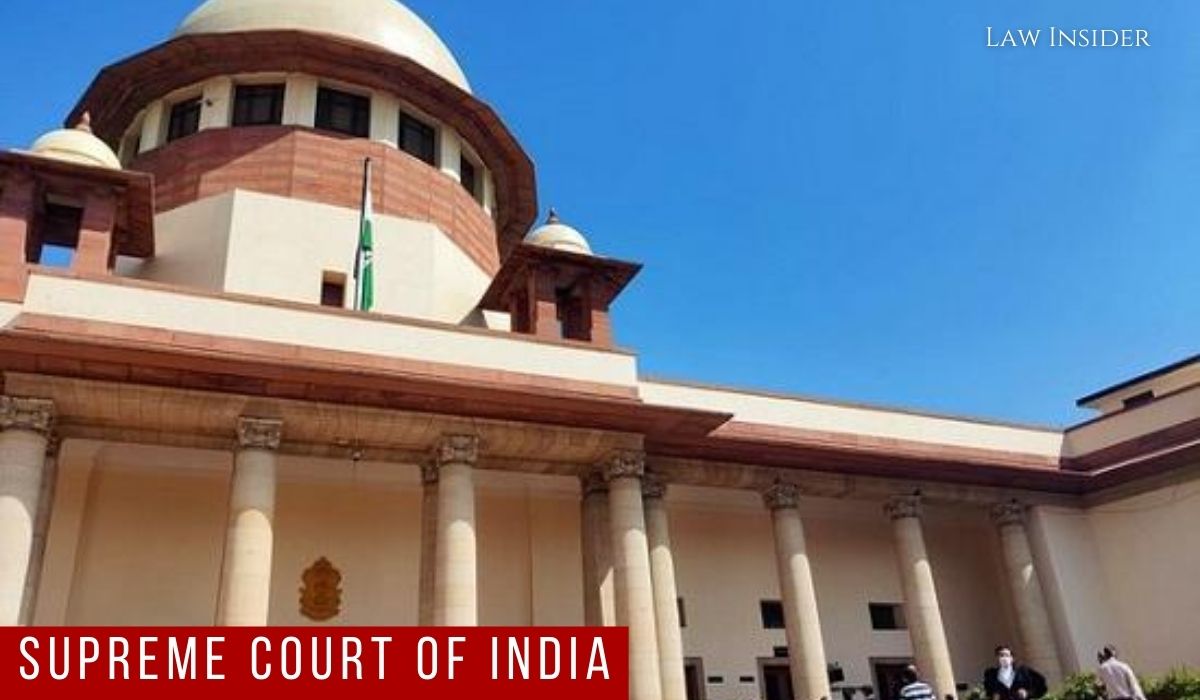Khushi Bajpai
Published on: 7th October, 2022 at 17:36 IST
The Supreme Court recently ruled that someone cannot be charged with insider trading if they engage in a transaction that is unquestionably going to lose money (SEBI v. Abhijit Rajan).
The actual gain or loss from such a transaction is irrelevant, according to a bench of judges that included Justices Indira Banerjee and V. Ramasubramanian, but the motivation behind the gain is crucial.
In doing so, the Court upheld a Securities Appellate Tribunal (SAT) decision declaring that Abhijit Rajan, a former director of Gammon, did not engage in insider trading when he sold shares.
“The closing price of the stock on September 3, 2013, according to SEBI, indicated a favourable position for the respondent. As a result, SEBI was able to determine that the respondent had made a profit. However, the value of a company’s stock is likely to increase if it changes its policies significantly and stands to benefit.”
“Despite this natural occurrence, if a person sells their stocks before the market trend manifests, it can only be seen as a transaction made without the intention of making illegal gains, even though it cannot be classified as a distress sale.”
Rajan presided over and oversaw all of the operations of Gammon Infrastructure Projects Limited (GIPL). The National Highways Authority of India (NHAI) awarded GIPL a 1,648 contract in 2012 to establish the Vijayawada Gundugolanu Road Project Private Limited (VGRPPL).
With Simplex Infrastructures Limited (SIL), which had been awarded comparable projects in other states, this new business engaged into two shareholders agreements. According to these contracts, GIPL was required to invest in SIL’s company for road projects, and SIL was required to invest in VGRPPL so that both parties would own 49% of the stock in each other’s projects.
The agreements were terminated in 2013 under the direction of Rajan’s GIPL Board of Directors, and Rajan subsequently sold his GIPL stock before making the public announcement of the termination. The Securities and Exchange Board of India examined this transaction (SEBI).
Rajan was found guilty of insider trading to the tune of $1.09 million by SEBI in 2014 and 2016, but those rulings were overturned by a SAT in 2019, which is what prompted the current appeal before the Supreme Court.
The SAT had argued that the termination decision was not price-sensitive, that Rajan had to make the sale at the time due to a restructuring of the company’s debt, and that the SEBI had acted based on the stock’s closing price a day after the sale of shares.
SEBI’s Senior Advocate Arvind Datar argued that statutory prohibitions cannot be relaxed because the total value of the cancelled contracts represented a relatively small portion of its annual revenue.
He continued by saying that legitimate motives or legitimate needs, as claimed by the respondent, cannot defeat the goal of a severe restriction on insider trading techniques. Additionally, SEBI took into account the closing price the next day because the stock exchanges were only informed about the termination near the end of trading hours.
Rajan’s attorney, Somasekhar Sundaresan, contended that the appeal did not raise any significant legal issues and that the failure to sell the shares would have resulted in the bankruptcy of GPIL. He emphasized that the structure of the corporate debt had consumed every penny of the transaction.
The Bench stated at the outset that the “materiality of the impact” that information can have on prices is directly associated with its price sensitivity.
“A piece of information could have a significant impact on the price of a company’s stock, either positively or negatively. Both positive and negative effects are possible.”
“The revelation should have the potential to either rocket the price of the company’s securities to new heights or send them down. Both bullish and bearish effects are possible. However, the impact must be real and not inconsequential at all.”
While the SEBI (Prohibition of Insider Trading) Regulations cannot give individuals engaging in insider trading a “escape path,” the Court argued that basic human behaviour cannot be disregarded.
“A person cannot be charged with insider trading if they engage in a deal that is almost certain to lose money. In other words, the amount of gain or loss is irrelevant; what matters is the motivation behind the gain.
“The Court ruled that the Appellate Tribunal was correct in concluding that the respondent’s conduct was motivated by the urgent need to avoid bankruptcy and that he had no intention of making illegal gains. In fact, the Tribunal discovered that following the dissemination of the information, the closing price of the shares increased.”
“This demonstrates that after the disclosure, the unpublished price-sensitive information was likely to be more advantageous to the shareholders. Any person interested in engaging in insider trading would have waited to sell his interests until the knowledge became public.“

